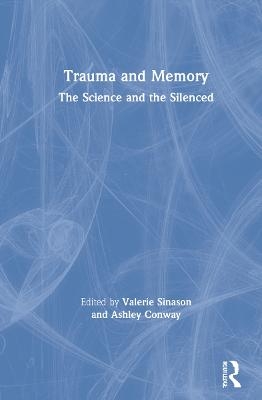
Trauma and Memory
Routledge (Verlag)
978-1-032-04432-3 (ISBN)
This book provides accounts of the damage caused to psychology and survivors internationally by false memory groups and ideas. It is unequivocally passionate about the truth of trauma memory and exposing the damaging disinformation that can seep into the field. Contributors to this book include leading professionals from the field of criminology, law, psychology and psychotherapy in the UK and USA, along with survivor-professionals who understand only too well the damage such disinformation can cause.
This book is a valuable resource for mental health professionals of all disciplines including those involved with relevant law and public health policy. It will also help survivors and survivor-professionals in gaining insight into the forces resisting disclosure.
Valerie Sinason, PhD, is a widely published Writer and Psychoanalyst. She has pioneered disability and trauma-informed therapy for over 30 years, is President of the Institute of Psychotherapy and Disability, Founder and Patron of the Clinic for Dissociative Studies and on the Board of the ISSTD. Ashley Conway, PhD, AFBPsS, is a Counselling Psychologist. He has worked in a wide range of fields of trauma, ranging through severe critical incidents to long term abuse, and has published widely in these areas. He is currently the Chair of the Clinic for Dissociative Studies in London, UK.
Introduction; 1: In conversation with Ross Chei; 2: False Memory Syndrome Movement: The Origins and the Promoters; 3: The Rocky Road to False Memories – Stories the Media Missed; 4: Re-examining the Lost-in-the-Mall Study: Were "false memories" created to promote a false defence? In conversation with Ruth Blizzard; 5: Evaluating False Memory Research, Winja Buss; 6: The Abuse of Science to Silence the Abused; 7: False memory syndrome; 8: Trauma, skin: memory, speech; 9: Sigmund Freud’s Concept of Repression: Historical and Empirical Perspectives; 10: Terror in the consulting-room memory, trauma, and dissociation; 11: How can we remember but be unable to recall? The complex functions of multi-modular memory; 12: "What if I should die?"; 13: Finding a new narrative: Meaningful responses to ‘false memory’ disinformation; 14: `Do No Harm’? Hearing and responding to victims and survivors
| Erscheinungsdatum | 13.08.2021 |
|---|---|
| Zusatzinfo | 2 Tables, black and white |
| Verlagsort | London |
| Sprache | englisch |
| Maße | 156 x 234 mm |
| Gewicht | 453 g |
| Themenwelt | Geisteswissenschaften ► Psychologie ► Allgemeine Psychologie |
| Geisteswissenschaften ► Psychologie ► Biopsychologie / Neurowissenschaften | |
| Geisteswissenschaften ► Psychologie ► Verhaltenstherapie | |
| Medizin / Pharmazie ► Medizinische Fachgebiete ► Notfallmedizin | |
| Medizin / Pharmazie ► Medizinische Fachgebiete ► Psychiatrie / Psychotherapie | |
| ISBN-10 | 1-032-04432-2 / 1032044322 |
| ISBN-13 | 978-1-032-04432-3 / 9781032044323 |
| Zustand | Neuware |
| Informationen gemäß Produktsicherheitsverordnung (GPSR) | |
| Haben Sie eine Frage zum Produkt? |
aus dem Bereich


